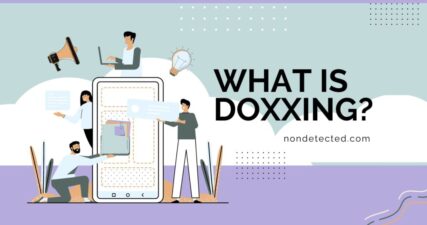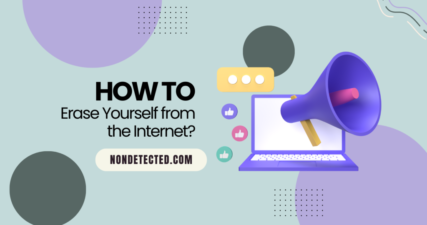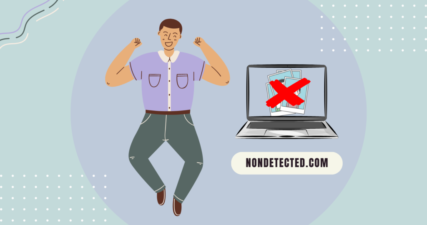A Guide to Online Privacy Laws and Personal Data Protection
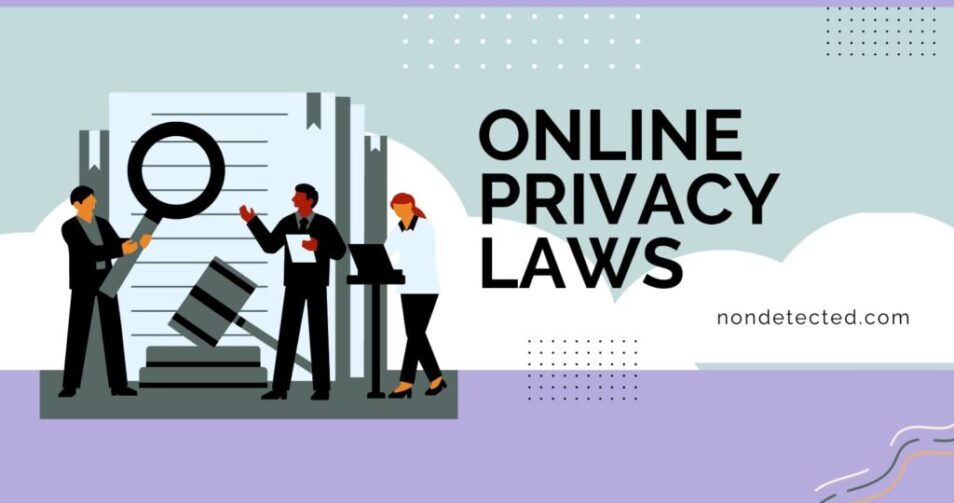
As an experienced professional in the field of online privacy and data protection, I’ve seen firsthand how the digital landscape can be both a boon and a bane. The internet has revolutionized how we communicate, work, and live, but it has also opened up new avenues for privacy invasion and data breaches.
I’m Tomas, and I work for NonDetected, a company dedicated to protecting your online presence. Today, I want to share some crucial insights into the laws against posting personal information online and how your personal information is protected online.
General Information About Data Protection Laws
Let’s start with the legal side of things. The internet, as we know it, is a relatively new phenomenon, and legal systems worldwide are still catching up.
In the United States, for instance, there isn’t a single law regulating online privacy. Instead, we have a patchwork of federal and state laws that apply.
One of the key laws in California, Penal Code § 653.2, is designed to counteract certain criminal conduct on the internet, specifically indirect harassment. This law, enacted in 2010, makes it a misdemeanor to post harmful information about another person online with the intent to cause them harm, such as inciting a third party to harass them.
From my experience, I can tell you that the implications of this law are far-reaching. It covers various electronic devices, including cell phones, computers, and even fax machines. The law applies to the distribution of personal identifying information, digital images, or any electronic message of a harassing nature about another person without their consent.
Example
Let’s take a real-life example. Suppose you find a wallet on the street and decide to post the owner’s personal information online in an attempt to find them. While your intentions might be good, this act could potentially be seen as an invasion of privacy under the law. It’s always better to hand over the wallet to the local authorities, who can handle the situation appropriately.
On the other hand, some laws protect your personal information, likeness, and private data. For instance, the Privacy Act of 1974 can lead to a fine of up to $5,000 and a misdemeanor on the offender’s record for violating these protections. If someone uses your information to defame your character, they could face severe penalties.
If your contact info has ended up online without your permission, there are companies that offer assistance in deleting personal records from people-search sites, public directories, and exposed data sources—saving you time and lowering the risk of further exposure.
Now, let’s switch gears and discuss how your personal information is protected online. As an expert in this field, the protection of your personal data online is a shared responsibility between you, the user, and the platforms or services you use.
Federal laws like the Children’s Online Privacy Protection Act (COPPA) and the California Online Privacy Protection Act of 2003 significantly protect your personal information.
For instance, COPPA requires certain websites and online service providers to obtain verifiable parental consent before collecting, using, or disclosing personal information from minors under the age of 13.
However, laws can only do so much. It’s equally important for you to adopt safe online practices. For instance, always check for an “https://” or a padlock icon in your browser’s URL bar to verify that a site is secure before entering any personal information.
In the final section of this article, I’ll share more expert tips on this regard.
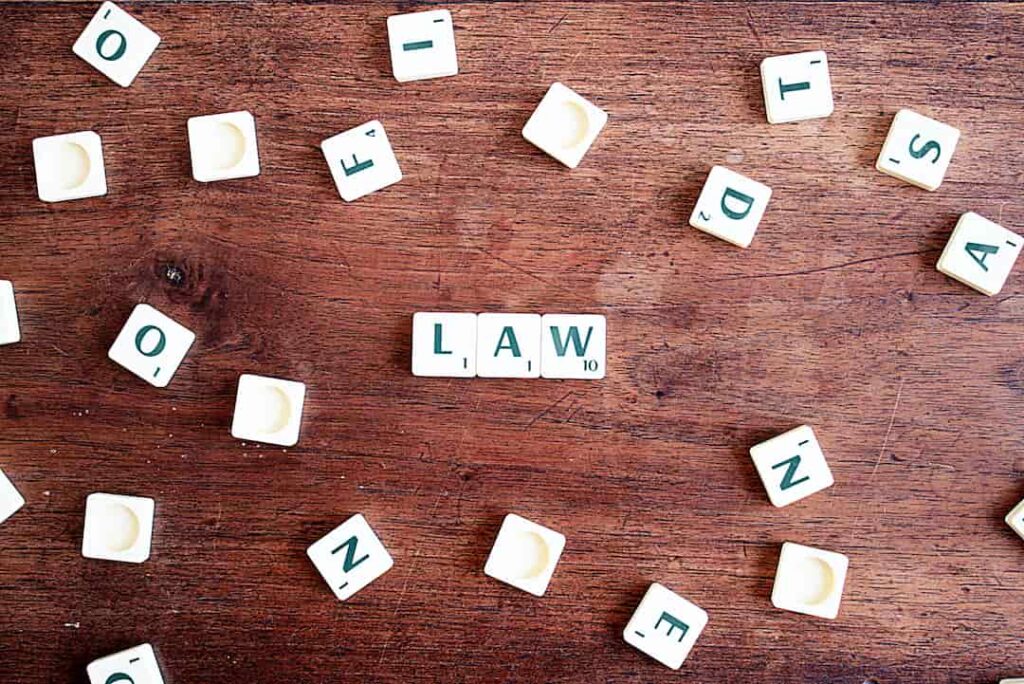
US Data Protection Laws
Let’s delve deeper into the key federal laws affecting online privacy in the United States:
The Federal Trade Commission Act (FTC) [1914]
This act regulates unfair or deceptive commercial practices. The FTC is the primary federal regulator in the privacy area and brings enforcement actions against companies for failing to comply with posted privacy policies and failing to protect personal information adequately.
Electronic Communications Privacy Act (ECPA) [1986]
This act protects certain wire, oral, and electronic communications from unauthorized interception, access, use, and disclosure. It’s a crucial law that helps safeguard our private conversations and data transmitted online.
Computer Fraud & Abuse Act (CFAA) [1986]
This act makes unlawful certain computer-related activities involving the unauthorized access of a computer to obtain specific information, defraud or obtain anything of value, transmit harmful items, or traffic in computer passwords. The law has been amended six times to keep up with the evolving digital landscape.
Children’s Online Privacy Protection Act (COPPA) [1998]
This act requires certain website and online service providers to obtain verifiable parental consent before collecting, using, or disclosing personal information from minors under the age of 13. It also requires websites to post an online privacy policy, collect only the necessary personal information, and create and maintain reasonable security measures.
Controlling the Assault of Non-Solicited Pornography and Marketing Act (CAN-SPAM Act) [2003]
This act can be quite useful for those seeking help removing explicit video content online or victims of porn revenge.
CAN-SPAM Act governs the sending of unsolicited commercial emails and prohibits misleading header information and deceptive subject lines. It also requires senders to disclose certain information, including a valid opt-out mechanism, and it creates civil and criminal penalties for violations.
Financial Services Modernization Act (GLBA) [1999]
This act regulates the collection, use, and disclosure of personal information collected or held by financial institutions and requires customer notices and a written information security program.
Fair and Accurate Credit Transactions Act (FACTA) [2003]
This act requires financial institutions and creditors to maintain written identity theft prevention programs. It’s a crucial law that helps protect consumers from identity theft and fraud.
These laws play a vital role in protecting your personal information online. However, it’s important to remember that these laws are just one part of the equation.
As I mentioned earlier, protecting your personal data online is a shared responsibility between you, the user, and the platforms or services you use.
Laws Around Digital Privacy in the EU
Let’s take a look at some of the key laws and regulations in the European Union (EU) that pertain to online privacy and data protection:
General Data Protection Regulation (GDPR) [2018]
This is the primary law regulating data protection and privacy in the EU. It gives individuals control over their personal data and simplifies the regulatory environment for international business by unifying the regulation within the EU. It applies to all companies processing the personal data of people residing in the EU, regardless of the company’s location.
ePrivacy Directive [2002/58/EC]
Also known as the ‘Cookie Law,’ this directive concerns the processing of personal data and the protection of privacy in the electronic communications sector. It includes provisions on the security of networks and services, confidentiality, billing information, location data, and cookies.
Directive on Security of Network and Information Systems (NIS Directive) [2016/1148]
This directive provides legal measures to boost the overall level of cybersecurity in the EU by ensuring member states’ preparedness, improving their cooperation on cybersecurity, and promoting a culture of risk management and incident reporting among key economic actors.
Directive 2000/31/EC (E-commerce Directive)
This directive provides rules for online services in the EU. It requires providers to follow certain information requirements, and it limits their liability for transmitted content in some circumstances. It also prohibits EU member states from restricting the freedom to provide services that are delivered electronically from another member state.
Directive 2006/24/EC (Data Retention Directive)
This directive requires telecommunication companies to retain metadata (who, when, where, and with whom you communicate, but not what you communicate) for a period between 6 months and 2 years, as specified by the national law of a member state. However, it was declared invalid by the Court of Justice of the EU in 2014 due to its serious interference with fundamental rights to respect for private life and the protection of personal data.
Regulation on Privacy and Electronic Communications (proposed ePrivacy Regulation)
This is a proposal to replace the ePrivacy Directive and align the rules with the GDPR. It would apply to all electronic communication, including newer services such as WhatsApp, Facebook Messenger, and Skype. It also includes rules about tracking technologies such as cookies and device fingerprinting.
These laws and regulations form the backbone of the EU’s approach to data protection and privacy, providing comprehensive protections for individuals and clear obligations for businesses.
As with the US laws, these regulations are just one part of the equation, and individuals must also take steps to protect their personal data online.
Privacy Protection Tips
Now that we’ve covered the legal landscape let’s move on to practical steps you can take to protect your personal information online.

Remember, while laws provide a framework for data protection, the responsibility of safeguarding your data also lies with you.
1. Be Cautious with Your Online Activities
One of the most common ways personal data gets compromised is through unsafe web browsing practices. Many users don’t scrutinize the sites they visit or the links they click. Malicious sites often use free offers, shortened URLs, or socially engineered pages to trick users into setting up an account and downloading malware.
My personal tip is to keep your anti-virus software up to date and use a secure Internet browser. Google Chrome and Microsoft Edge are currently the two best choices.
Always scan files with your anti-virus software before downloading them. And remember, never reuse passwords for multiple websites.
2. Manage Your Cookies
Cookies are small files downloaded to your browser by a website. They can be helpful for things like keeping your login information for a site so you don’t have to enter it again.
However, cookies can also be used to track your activities and capture your purchasing habits, which can then be shared with unwanted third parties.
I suggest setting your browser to delete cookies every time you finish browsing. Alternatively, you can set “opt-out” cookies on your browser so cookies aren’t allowed at all.
3. Protect Your IP Address
Your Internet Protocol (IP) address is a numerical label that identifies your device on the internet. Undesirable parties may trace your personal information by looking up your website address if it is listed in WHOIS, the central database containing all web addresses on the internet.
If you set up a website, you can request a private WHOIS listing from the database manager, Network Solutions. Their name, address, and other ownership information will appear instead of yours.
You can use a Virtual Private Network (VPN) tool when working on your personal computer. A good one is IP Vanish. You log into the VPN as an intermediary. After that point, your IP address is encrypted and goes through the VPN provider to the internet.
In the next part, I’ll discuss more about the use of HTTPS instead of HTTP, the risks associated with cloud computing, and how to mitigate them.
4. Use HTTPS Instead of HTTP
When you’re browsing the internet, you might have noticed that some website URLs start with “http://” while others start with “https://“. The “s” in “https://” stands for “secure”. It means all communications between your browser and the website are encrypted.
I cannot stress enough how important it is to ensure that a site is secure before entering any personal information. Always check for an “https://” or a padlock icon in your browser’s URL bar.
If you’re hosting a website, consider implementing SSL (Secure Sockets Layer) on your web server to ensure data privacy.
5. Understand the Risks Associated with Cloud Computing
Cloud computing has revolutionized the way we store and access data. However, it also comes with its own set of risks. When you store data in the cloud, you’re essentially handing over your data to a third party. This makes your data’s security reliant on the cloud provider’s security measures.
I recommend finding out from the provider who is in charge of each cloud security control. Train someone in using provider-provided identity and access tools, ensure the provider has all your stored data with them encrypted, and use logging tools to enable self-security logging and monitoring.
6. Be Aware of Data Collection Laws
As I mentioned earlier, several laws are in place to regulate personal data collection. For instance, the California Online Privacy Protection Act of 2003 requires the operator of a commercial website that collects personal information about users to post its privacy policy on its website conspicuously.
As a user, it’s important to read these privacy policies and understand what data is being collected, how it’s being used, and how it’s being protected. If you’re uncomfortable with a website’s privacy policy, it’s best to avoid using that website or service.
Get Expert Data Protection Assistance
Protecting your personal information online requires a combination of awareness, safe practices, and an understanding of the laws that protect your data. Remember, the internet is a powerful tool, but it’s also a double-edged sword. Use it wisely, and stay safe online!
If the situation led to press coverage or blog posts that no longer reflect the facts—or were never accurate to begin with—there are professionals who assist in requesting the removal of outdated news content, especially when it continues to affect your reputation.
Hence, if you ever find yourself in a situation where your privacy rights have been compromised, or if you’re unsure about how to protect your personal information online, don’t hesitate to reach out to us at NonDetected.
Our team of experienced professionals is dedicated to helping you navigate the complex world of online privacy and data protection.
We offer a range of services tailored to your specific needs, from helping you understand your rights under various privacy laws to providing practical solutions for enhancing your online security. Everyone has the right to a safe and secure online presence, and we’re here to help you achieve that.
Even after a post or page is taken down, it might still show up in search results due to indexing or cached copies. That’s when seeking help from a team that handles outdated or unwanted search listings can make a big difference in what the internet keeps showing about you.
Don’t let the fear of data breaches or privacy invasion keep you from enjoying the benefits of the digital world.
Contact us today, and let’s work together to safeguard your digital footprint. Your online privacy matters, and we’re here to protect your online reputation.
